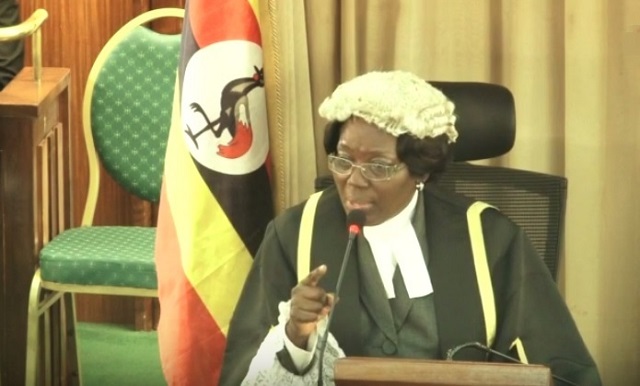
Although the Reform Commission are praising the new draft Bill as “more accommodative”, women activists are trashing it as “unreal”.
They say; without provisions covering cohabitation and property sharing, the proposed law is just an old law under a new name. They say some of the issues that have been left untouched have been already outlawed under case law. They point at the case of Julius RwabinumiVs Hope Bahimbisomwe where Supreme Court ordered the couple to share property from land, cars and gifts got at the wedding ceremony equally after the dissolution of their one year marriage, the 2015 Mifumi ruling where, in a majority judgment of 6:1, the Supreme Court declared that the traditional custom and practice of demanding a refund of the bride price if a marriage breaks down was unconstitutional. It followed a 2007 Constitutional Court petition by a local NGO, Mifumi to declare bride price unconstitutional.
The Constitutional Court had earlier ruled against the petition but on appeal in the Supreme Court, refunding was made unconstitutional although offering of bride price was not abolished. There is also the most recent of the case related to marriage; that of Olive Kigongo; the longtime partner of ruling government supremo, Moses Kigongo, where it was ruled that it is criminal for a person to willfully and by fraud cause any woman who is not lawfully married to him to believe that she is lawfully married to him. Such a person is liable to imprisonment for ten years.
Ritah Aciro, the Executive Director Uganda Women’s Network says these recent court cases show how important the law is and that it is not just about women.
“Men will fight to maintain the status quo but they are also fighting themselves. Imagine you have undergone circumcision or a prostate cancer procedure but your wife forcefully demands for sex,” she says.
For her, the Bill comes at the right time when compulsory land acquisition by the government is being discussed. She believes these are issues that they are bringing out one by one but have a connection.
Aciro says, however, she is worried that the draft law seems “watered down and may not really address critical issues that are affecting society”.
Musiime agrees with Aciro. She says these changes the Law Commission made make the Bill inconsequential because it does not address what is happening in society.
“Many people are cohabiting. It may not be the most desirable but that’s what’s happening and people in these relationships need to be protected,” she says. She says even politicians recognize how important domestic law is but they are unsure of what implications supporting it can have on their career. President Museveni is said to belong to this category of calculating politicians. He is unwilling to confront the patriarchal majority that supports a status quo that oppresses women.
In 2013 for instance, when Kadaga again attempted to aggressively push the Domestic bill through parliament, Museveni used the Women’s Day celebrations held in Nakasongola district express his views that some of the issues proposed could erode “our societal values”. He said they were views fronted by elite women who had made marriage look like some form of business and that they were hiding under the guise of a good cause of women emancipation.
“Why do people get married – because of property or what? People, especially the middle class, should marry because of love, companionship, having children in order to perpetuate humanity and okwombeka (to create a home),” he is quoted to have said.
For Dr. Sylvia Tamale; a law lecturer at Makerere University, the current discussion exposes a continuing gender, class, sexuality, and political played out at the institutional level of the family. She says the family law movement has been defeated for years because it threatens to disrupt the basic patriarchal arrangement where married women and mothers remain in subordinated, dependent, and domesticated roles.
She says the power and privileges that most men enjoy within the family institution at the expense of women and children are replicated at the national level. Tamale says she has learnt the limitations of using the legal reform strategy in achieving gender equity on family and sexuality matters. She says the women’s movement must never take for granted, ignore, or erase the complexities and contradictions of women’s realities. She says some women are not willing to risk further abuse by rejecting deeply entrenched beliefs on such a sensitive facet of their lives.
****
 The Independent Uganda: You get the Truth we Pay the Price
The Independent Uganda: You get the Truth we Pay the Price



